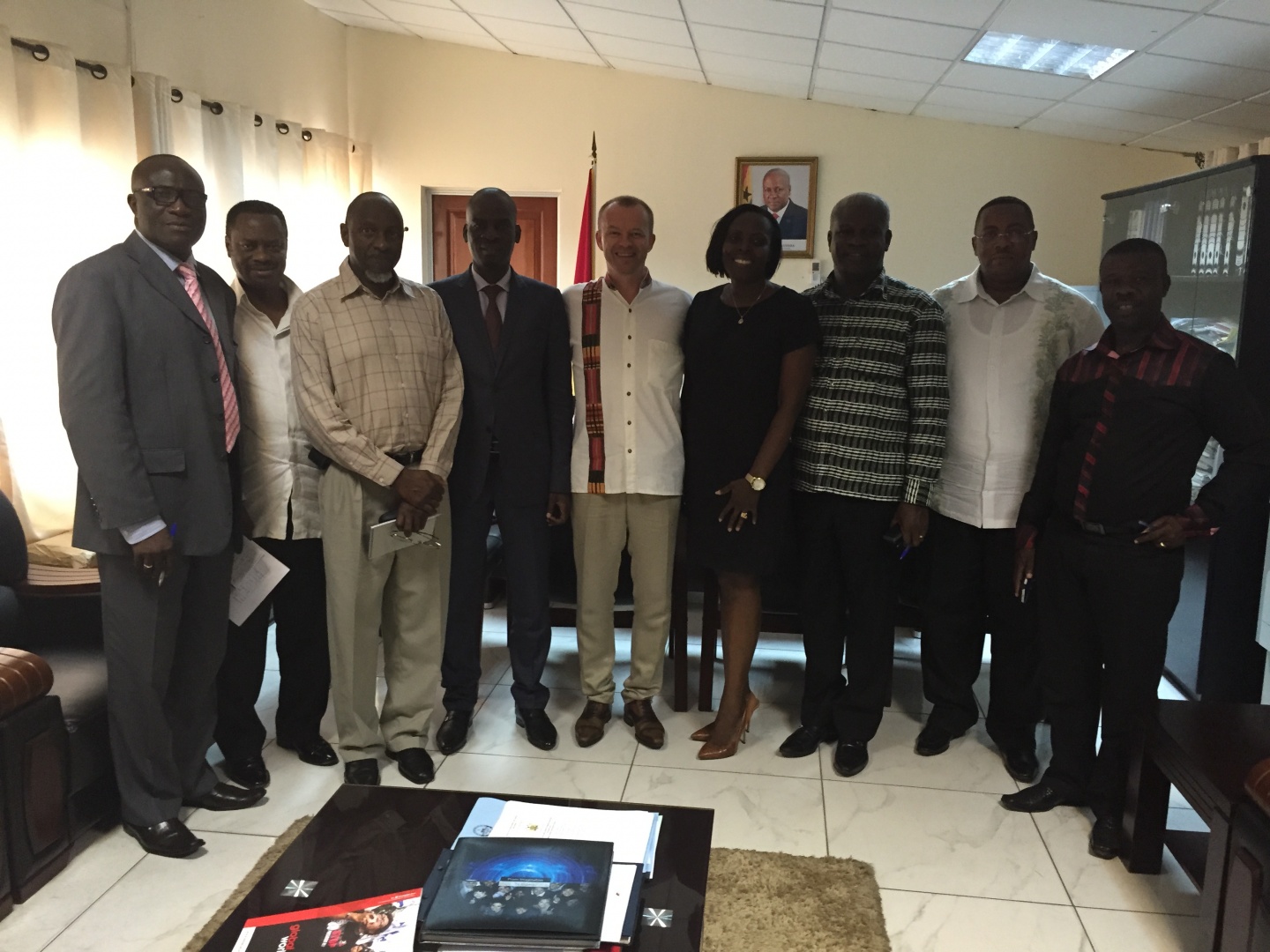16 April, 2015Ghana needs good industrial jobs, not precarious work, IndustriALL Global Union general secretary Jyrki Raina tells the labour minister during his visit to Accra.
Problems related to precarious work and outsourcing were visible on the agenda at a meeting between IndustriALL general secretary Jyrki Raina and Ghana’s minister of employment and labour relations Haruna Iddrisu on 14 April 2015 in Accra.
Raina was accompanied by regional secretary Fabian Nkomo and leaders of IndustriALL affiliates Industrial and Commercial Union (ICU), Ghana Mine Workers’ Union (GMWU) and Ghana Transport, Petroleum and Chemical Workers Union (GTPCWU).
The minister promised to study carefully a document prepared by the unions on the need to limit outsourcing and casualization. More than 60 percent of Ghana’s workforce is in the informal sector.
In companies, contract workers toil side by side with permanent workers, but they are not covered by collective agreements. Precarious workers earn sometimes only a third of what permanent workers do. They do not get any of the social benefits granted in collective agreements.
Jyrki Raina and minister Iddrisu agreed that Ghana needs to build a strong industrial base with added value products, instead of exporting mineral resources and crude oil. This requires a sustainable industrial policy to boost the creation of good quality permanent jobs, investments in infrastructure, skills and training of workers and access to energy at a reasonable price. Shortage of electricity is a huge problem for industrial companies.
Iddrisu reiterated the government’s commitment to the Decent Work Agenda and promised to continue dialogue with the unions to find solutions to different challenges.
Raina urged again the government to ratify ILO Convention 176 on health and safety in mines. Ghana is an important mining country. The minister tasked his staff to check where the mining ministry was with the ratification process.
During visits to aluminium, steel and textile companies, both management and local union representatives named the shortage of electricity as the biggest challenge on which there was no clear government strategy. Production has to be shut down on several days of the month, which means loss of sales. It also complicates the task of local union leaders to negotiate better salaries and working conditions.
In all meetings and the press conference, salary disparities between local workers and expatriates doing the same job were described as a wide-spread problem. Raina promised to raise the question of fairness and equal treatment of workers with a number of multinational corporations with which IndustriALL has signed global framework agreements.
IndustriALL affiliates in Ghana told the general secretary about their increasing cooperation towards unity. They share a strong commitment towards a merger of all the three unions to create a single organization with a loud and united voice. The Ghana IndustriALL Country Council is preparing a joint Mayday action against outsourcing and precarious work.



